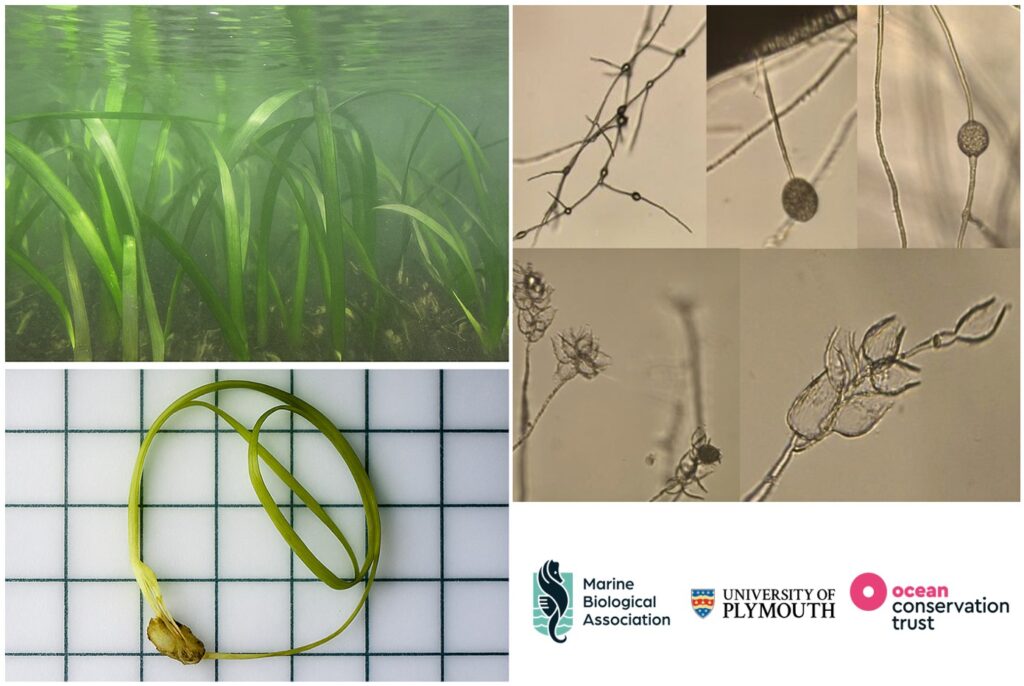Project Description
Supervisors
Professor Michael Cunliffe, Marine Biological Association and School of Biological and Marine Sciences, University of Plymouth
Dr George Littlejohn, School of Biological and Marine Sciences, University of Plymouth
Mr Andy Cameron, Ocean Conservation Trust
Scientific Background
Seagrass meadows, such as those formed by Zostera marina (common eelgrass), are vital marine ecosystems that support biodiversity, stabilise sediments and sequester carbon. However, these meadows are increasingly threatened by climate change, pollution and disease. Emerging evidence highlights the role of microbial pathogens, especially the pseudofungus Phytophthora gemini (a fungus-like oomycete), in undermining restoration efforts by infecting eelgrass seeds and seedlings. This project addresses a critical knowledge gap in the biology and ecology of seagrass pathogens and their impact on restoration success, offering timely insights into disease mitigation strategies.

Research Methodology
The PhD researcher will investigate the infection biology of Phytophthora gemini and its interaction with Zostera marina through a combination of laboratory assays, microscopy, and molecular techniques (e.g. qPCR, metabarcoding) to characterise pathogen life cycles, host responses and environmental tolerances. Fieldwork will be conducted at selected coastal sites to assess natural infection dynamics and collect samples for analysis. Restoration trials will be designed to test seed treatments and planting strategies under controlled and semi-natural conditions. The project will be based at the Marine Biological Association (MBA) in Plymouth, with additional work at the University of Plymouth and the Ocean Conservation Trust. There will be opportunities for collaboration across UK and international research networks.
Training
The researcher will gain interdisciplinary training in microbiology, marine ecology, plant pathology, molecular biology and restoration science, with a strong emphasis on applied ecological research. They will develop skills in experimental design, statistical analysis and scientific communication. Opportunities include attending international conferences, publishing in peer-reviewed journals and engaging with stakeholders involved in seagrass restoration. The MBA offers a vibrant research environment with access to cutting-edge facilities and mentoring from experienced scientists.
Person Specification
We seek an enthusiastic individual with a strong interest in marine biology, plant–microbe interactions and ecological restoration. A background in biology, environmental science or a related discipline is desirable. Prior experience in microbiology, molecular techniques, microscopy or fieldwork is advantageous but not essential. The ideal candidate will be curious, collaborative and motivated to contribute to ecological research with real-world impact.
Acceptable first degree subjects: Biology, Marine Biology, Ecology, Botany / Plant Biology, Molecular Ecology / Molecular Biology
Project code: CUNLIFFE_MBA_ARIES26
